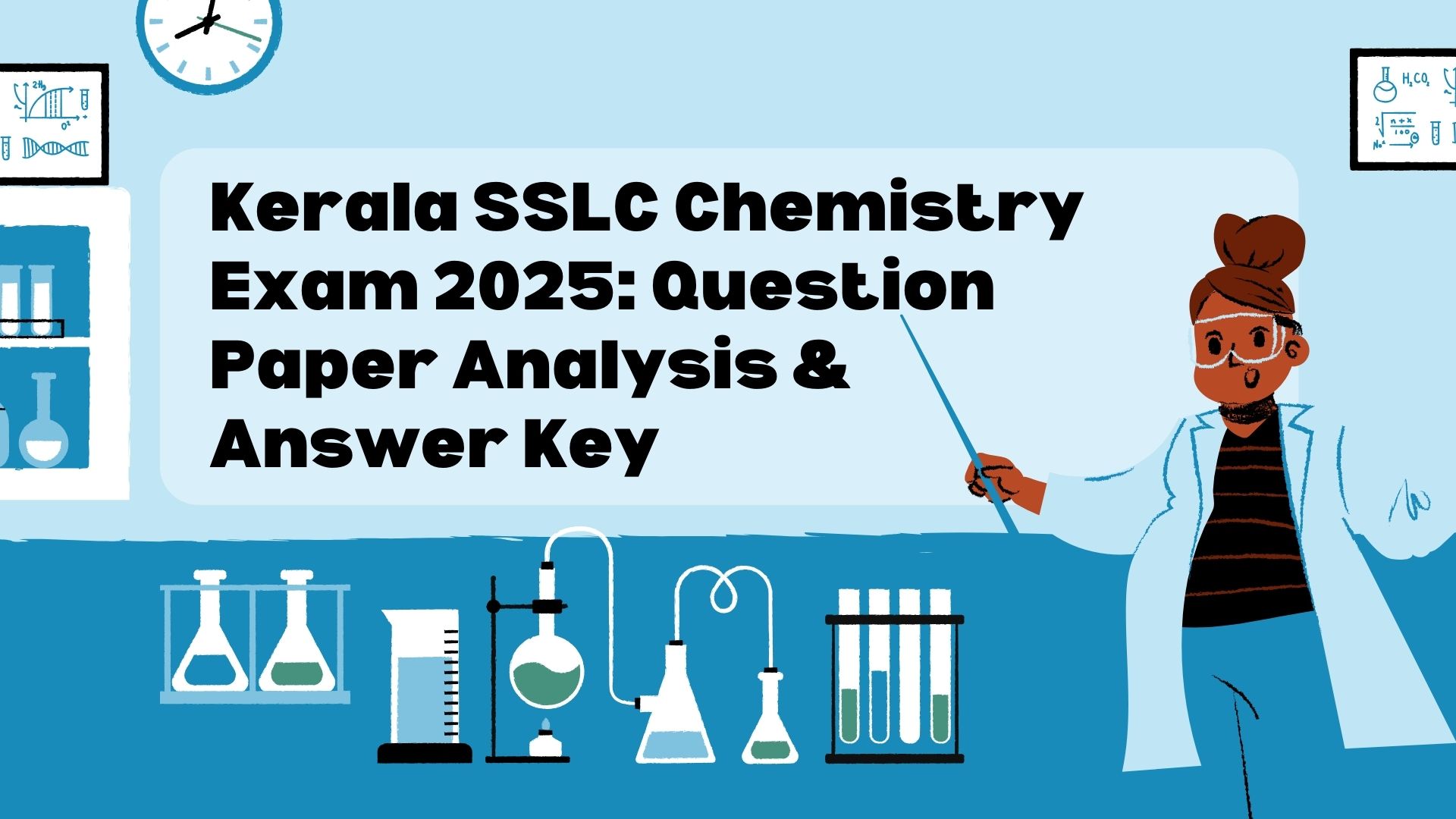Kerala SSLC Chemistry Exam 2025: Question Paper Analysis and Answer Key




The Kerala Class 10 Chemistry exam for 2025 was conducted on March 24, 2025, from 9:30 AM to 11:15 AM. The exam, organized by the Kerala Board of Public Examination (KBPE), carried a total of 40 marks and followed the SCERT syllabus.

The overall difficulty of the exam was easy to moderate. Many students found the paper easier than the model exam, while only a few felt certain questions were challenging.
The Kerala SSLC Chemistry exam is conducted for a total of 50 marks, which includes:
Students need to secure 33 percent marks in total, which means they must score at least 17 marks out of 50 to pass. The Continuous Evaluation marks are based on internal assessments, including assignments, projects, and practical work.
To pass the Kerala SSLC Chemistry exam, students need to secure 33 percent marks. Since the exam is out of 40 marks, a minimum of 13 marks is required to pass.
Students who wish to access the 2025 Kerala SSLC Chemistry question paper can follow these steps:
Click on the download link and save the PDF for future reference
| Click here to download the Kerala SSLC Chemistry Exam Question Paper 2025 |
The official answer key will be released soon. Stay tuned for updates to help you analyze your performance and prepare better for upcoming exams.
To excel in future exams and stay updated with the latest question patterns, enroll in Interval Learning. Our expert guidance and structured study plans will help you master concepts, improve problem-solving skills, and boost your confidence.
Join Interval Learning today for expert-led tuition.
The exam was easy to moderate, with most students finding it simpler than the model exam.
Yes, most MCQs were direct and from the SCERT syllabus, making them easy to solve.
You can visit the official Kerala SSLC Board website, go to the Examination Section, and download the paper from the Previous Year Question Papers section.
The exam was for 40 marks.
Enroll in Interval Learning programs, practice previous years' papers, and focus on understanding core concepts for better performance.